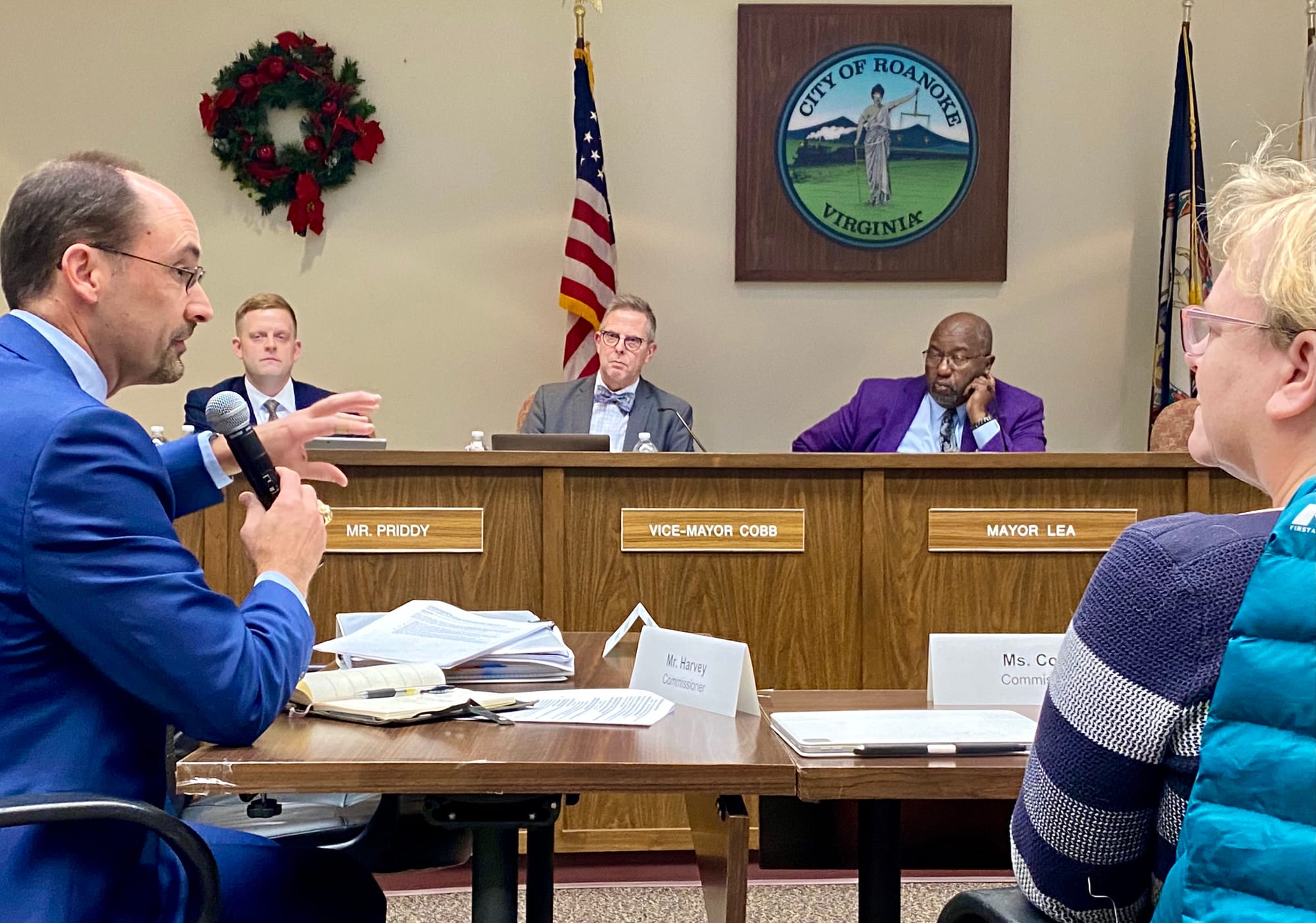In $300,000 Question, Roanoke Leaders Ask Who Should Get Grants To Reduce Gun Violence
City staff say organizations must spend this second cycle of grant funding by the end of June.

Roanoke leaders will soon decide how to distribute $300,000 in pandemic relief funds to community groups with projects aimed at reducing gun violence.
But 26 nonprofits have submitted proposals totaling more than $656,000.
Members of City Council and its Gun Violence Prevention Commission held their first joint meeting Tuesday since the municipal auditor released a report critical of how the commission and staff tracked money given out during the previous cycle of about $500,000 worth of grants.
Some Council members have scrutinized the commission’s decision-making, as well as who sits on the citizen board. In recent months, three commissioners — one-third of the body — have resigned, all citing Council politics as at least one factor in their decisions.
City staff say the second round of grants will go out by next month, and any local church or nonprofit that receives money must spend it by the end of June, to adhere to American Rescue Plan Act timelines.
Council members’ most burning question: How will commissioners decide who gets funding?
“Ninety percent of these people are going to be disappointed,” commissioner Elliott Major said, noting the gap between requests and available funds. “It’s everyone’s responsibility to set the expectation.”
Councilwoman Trish White-Boyd said “there was a lot of ambiguity” last year around which nonprofits received funding, sometimes leading to grievances from residents.
“I think it would be good if we had pretty concise metrics to make sure that there's no question on how you determine who these organizations are that will be receiving the funding,” she said.
Mayor Sherman Lea agreed.
“I hope you do this so we don’t have the ambiguity and issues that we had last year,” he said. “It’s important that we stay close to this, because the people who are not granted for some reason, we’re who they appeal to. We’re who they say, ‘Why?’”
City Manager Bob Cowell said staff had sent Council members a link to a webinar where the application criteria were laid out.
“I get links all day long,” Councilwoman Trish White-Boyd said.
Lea agreed, but acknowledged Council needs to be more involved in the oversight of the city’s gun violence prevention efforts.
“We have to do a better job ourselves,” the mayor said. “No question about that.”
Council was on track in May to adopt changes to the commission so that Council would have to approve its grant fund recommendations. But that plan derailed after concerns it was holding the commission to a higher standard than other advisory boards. Instead, Council approved tweaks in October with more limited oversight.
Angie O’Brien, an assistant city manager, said that on the webinar Vice Mayor Joe Cobb, who chairs the commission, laid out how commissioners are looking for projects that would intervene in gun violence and that are particularly focused in Northwest Roanoke.
She said the maximum grant available to a single organization is $30,000 and that the city had received several such requests.
Commissioner Kathy Cohen asked Council for their thoughts on funding priorities.
“We have $300,000,” she said. “What pockets do you think is most important for that money to go to?”
“Anything that’s going to be impactful in reducing gun violence,” White-Boyd said.
“You’re suggesting that it should be something that reduces gun violence today?” Cohen asked.
“No, I did not say today,” White-Boyd said.
“The people that put us here, that’s what they expect,” Lea added, noting that voters are frustrated with the city’s high number of homicides.
“The youth has its place, is important,” the mayor said, “But I have to answer to that 65, 75-year-old person that lives on X Street that says ‘When is this going to stop? I’m scared to sit on my porch at night.’”
In the last round of grant applications, many projects focused on youth, Cohen said. That’s good to build a safer city, she said, but “it may not do a whole lot in the present.”
The year ended with 28 people killed, Chief Scott Booth said Tuesday, a rate not seen in decades. A year-end report from the commission noted how Roanoke has made headway recently in reducing the number of youth involved in shootings.
“Though gun violence incidents increased in 2023, most of these were adult interpersonal violence with a significant reduction in gang violence related incidents,” the report said.
Major noted the difficulty in striking a balance — how to address one aspect of gun violence without ignoring another that could flare up.
“We don’t want to play Whac-A-Mole,” he said. “What’s going on today will be different than tomorrow.”

